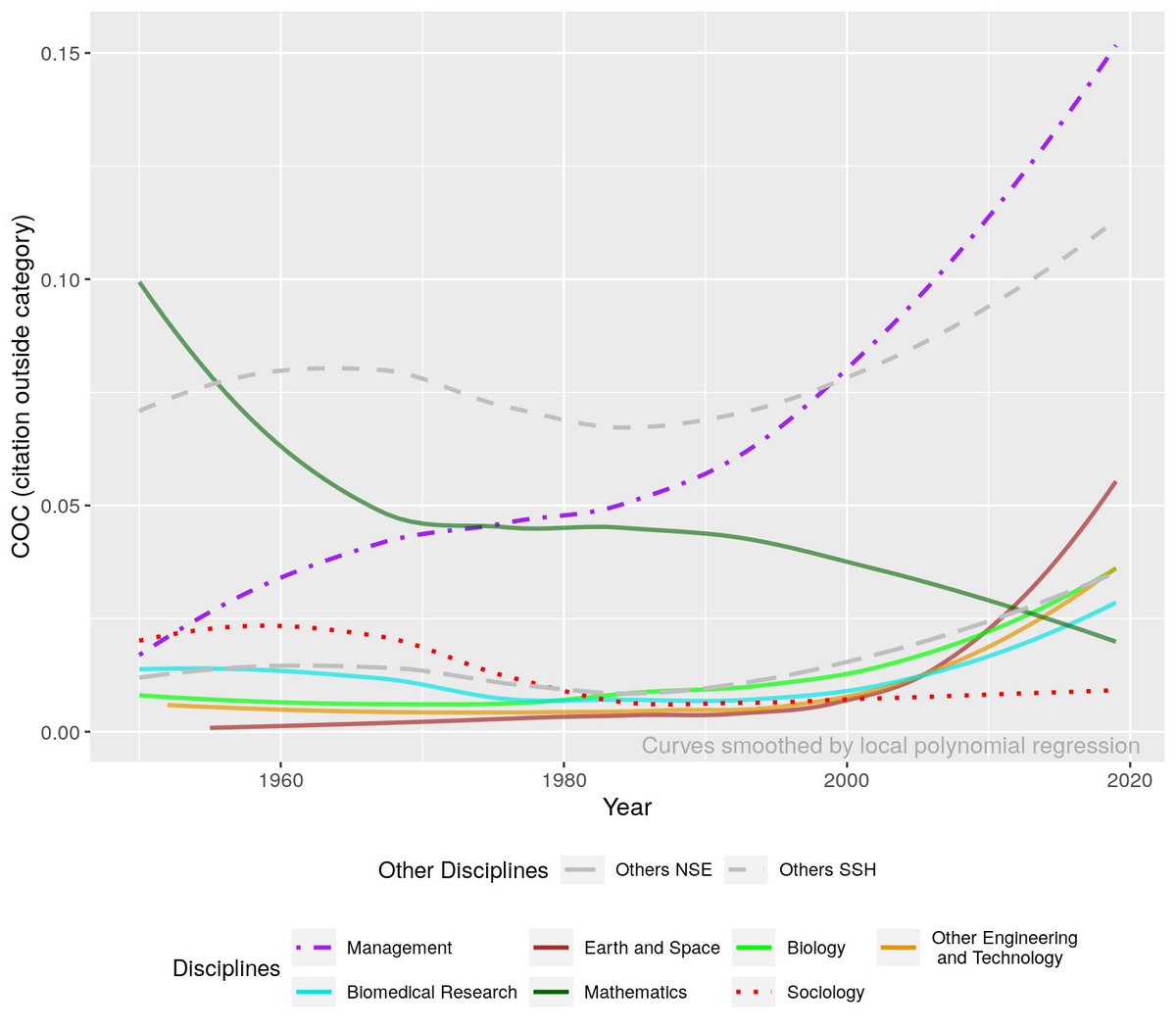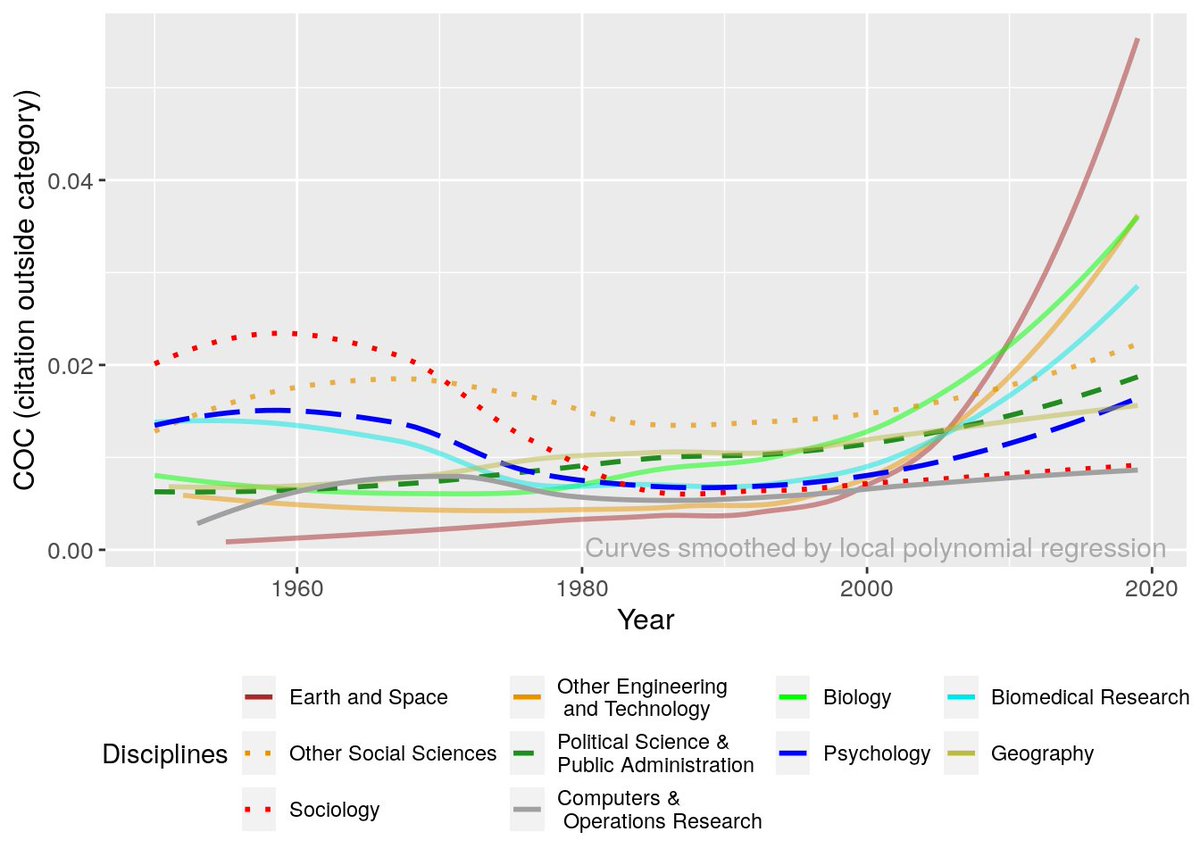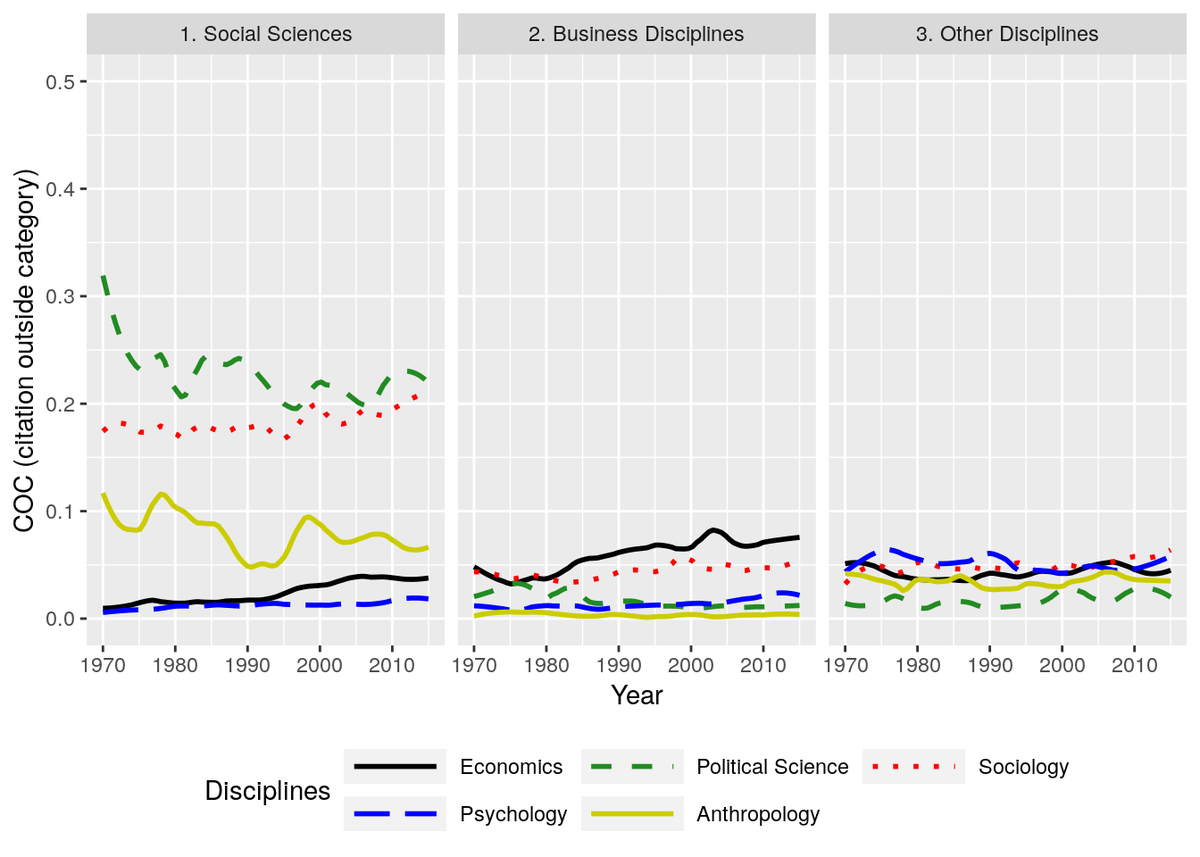7/ Beyond the question of more or less interdisciplinarity, the disciplines of interest for economists also transformed drastically. Looking at the seven most cited disciplines in economics, we observe a sharp decreasing interest for mathematics since the 1950s.
8/ Instead, economists turn their attention to management, which became the most cited discipline in the late 1970s. By the end of the 2018, management was by far the most cited discipline in economics with around 15% of all COC to the discipline.
9/ Another interesting transformation is the rising interest of economists for environmental sciences (Earth and Space). The share of COC to this discipline increased very rapidly in the early 2000s, and it is now the second most cited discipline.
10/ Excluding management and mathematics, we also observe small-scale transformations related to local specialties in economics. Most notably, we find an increasing interest for biology and natural sciences, psychology, political sciences and geography.
11/ Overall, after the 1990s, the interdisciplinary practices of economists transformed. Economics became more open to external influence, and the interests of economists shifted from mathematics to management, environmental sciences + a variety of natural and social sciences.
12/ Before concluding the thread, let’s discuss the literature about interdisciplinarity in economics. Fourcade et al. (2015), claimed that BE is insular. It is true, but they missed the turn of the 1990s because they only look at the top 5 journals.
13/ Against Fourcade et al., Angrist et al. (2020) ( @metrics52) claimed: “[E]conomics is not uniquely insular: psychology is less outward looking than economics, and anthropology looks more like economics” using this graph.
14/ We followed Angrist et al. methodology and reproduced their graph with our own data. The graph is similar enough to indicate that our data are probably not substantially different from theirs.
15/ However, we find that Angrist et al. suffer from a selection bias in the disciplines they studied. For example, Angrist et al. neglected the citations from SSH to some disciplines like biology or neurosciences, leading them to underestimate the openness of other SSH.
16/ If we look at the citations from other SSH to all disciplines using the National Science Foundation categories, we find that their portrait of interdisciplinarity practices in social sciences changes drastically.
17/ Overall, both Fourcade et al. and Angrist et al. have some points. Economics is uniquely insular, and economics is changing. While it is important to acknowledge the turn toward more openness to external influence in economics since the 1990s…
18/ … it is also important to acknowledge its characteristics. The turn did not concerns the elite journals of economics, and economists mostly turn their attention to management.
19/ Paper with more results and methodology available at: https://papers.ssrn.com/sol3/papers.cfm?abstract_id=3669335.">https://papers.ssrn.com/sol3/pape... Made in collaboration with Olivier Santerre, @y_gingras, @claveau_f.
20/ Some people that might be interested @Undercoverhist @metrics52 @RyanReedHill @pierre_azoulay @CFCamerer

 Read on Twitter
Read on Twitter

![13/ Against Fourcade et al., Angrist et al. (2020) ( @metrics52) claimed: “[E]conomics is not uniquely insular: psychology is less outward looking than economics, and anthropology looks more like economics” using this graph. 13/ Against Fourcade et al., Angrist et al. (2020) ( @metrics52) claimed: “[E]conomics is not uniquely insular: psychology is less outward looking than economics, and anthropology looks more like economics” using this graph.](https://pbs.twimg.com/media/Ee-0euHXoAElXx3.jpg)




